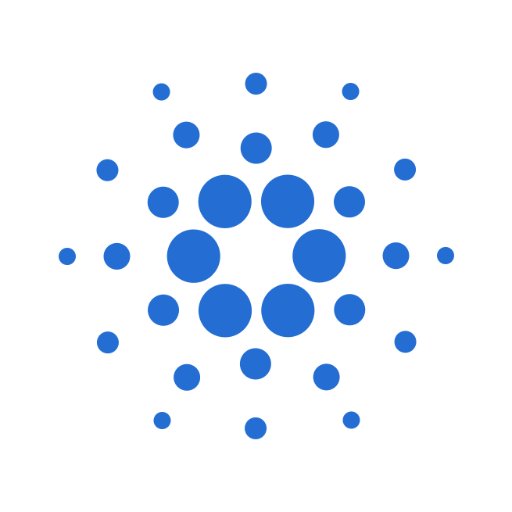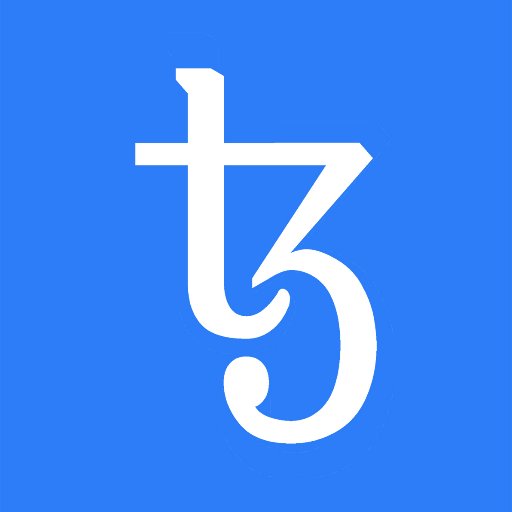Confronta Cardano (ADA) vs Tezos (XTZ) Coin
Like never before, the world of cryptocurrency is witnessing a rising tide of competition playing out in various dimensions, especially between Cardano (ADA) and Tezos (XTZ). This article will delve into a comprehensive comparison between these two dominant forces in the digital currency universe, focusing on their primary attributes, technological edge, and trade-offs. Our aim is to arm prospective investors and technology enthusiasts with balanced insight for a more informed decision.
User rating
Cryptogeek rating
Punteggio di Fiducia
Come funziona
About
|
La moneta Cardano (ADA) è una criptovaluta lanciata nel 2017. La valuta si basa sulla rete Cardano. Il leader del team di sviluppo è Charles Hoskinson, uno sviluppatore esperto che ha lavorato per Ethereum e BitShares prima del lancio di Cardano. Cardano è la prima criptovaluta a utilizzare codice open source accademicamente rivisto da peer, il che rende questo progetto abbastanza unico. L'algoritmo di consenso di Cardano è Proof-of-Stake. Cardano è generalmente elogiato per l'alto livello di sicurezza e le transazioni veloci. La valuta cardano ha rapidamente guadagnato valore ed è diventata una delle 10 principali criptovalute per capitalizzazione di mercato.
|
Tezos è una piattaforma di contratto intelligente con una propria blockchain e un token nativo (Tezos, XTZ). La governance viene eseguita tramite l'algoritmo Proof-of-Stake. Significa che le parti interessate (coloro che possiedono almeno 10.000 XTZ) votano per le modifiche al protocollo. Questi validatori ("fornai") ricevono premi per l'esecuzione della validazione. I premi vengono generati tramite l'inflazione. Anche coloro che delegano la loro XTZ ai fornai possono guadagnare. Tezos ha un meccanismo di "auto-modifica" incorporato che consente di modellare la rete senza dover creare forcelle. Mantiene unita la comunità e semplifica il processo di sviluppo.
|
Tipo
Data di lancio
Località:
Lingue
Team
Protocollo
|
Public blockchain
|
Public blockchain
|
Prezzo attuale (USD)
Più alto di sempre (USD)
Variazione di prezzo (24 ore)
Volume (24 ore)
|
68681790.40337
|
3904068.57235
|
Hashrate
Limite Massimo
|
45000000000.00000
|
Nessun dato
|
Totale offerta
Limite in circolazione
|
45000000000.00000
|
1076362470.63620
|
Velocità di transazione / Tempo blocco
Commissione sulla transazione
Profitabilità di mining
Algoritmo
Proof type
Completamente estratto
Smart contract indirizzo
Totale monete estratte
|
25927070538.00000
|
810904882.00580
|
Sta commerciando
Ricompensa di blocco
|
0.000000000000
|
0.000000000000
|
Tempo di blocco
| About |
La moneta Cardano (ADA) è una criptovaluta lanciata nel 2017. La valuta si basa sulla rete Cardano. Il leader del team di sviluppo è Charles Hoskinson, uno sviluppatore esperto che ha lavorato per Ethereum e BitShares prima del lancio di Cardano. Cardano è la prima criptovaluta a utilizzare codice open source accademicamente rivisto da peer, il che rende questo progetto abbastanza unico. L'algoritmo di consenso di Cardano è Proof-of-Stake. Cardano è generalmente elogiato per l'alto livello di sicurezza e le transazioni veloci. La valuta cardano ha rapidamente guadagnato valore ed è diventata una delle 10 principali criptovalute per capitalizzazione di mercato.
|
Tezos è una piattaforma di contratto intelligente con una propria blockchain e un token nativo (Tezos, XTZ). La governance viene eseguita tramite l'algoritmo Proof-of-Stake. Significa che le parti interessate (coloro che possiedono almeno 10.000 XTZ) votano per le modifiche al protocollo. Questi validatori ("fornai") ricevono premi per l'esecuzione della validazione. I premi vengono generati tramite l'inflazione. Anche coloro che delegano la loro XTZ ai fornai possono guadagnare. Tezos ha un meccanismo di "auto-modifica" incorporato che consente di modellare la rete senza dover creare forcelle. Mantiene unita la comunità e semplifica il processo di sviluppo.
|
| Tipo |
Tipo
coin
|
Tipo
coin
|
| Data di lancio |
Data di lancio
2017
|
Data di lancio
2016
|
| Località: |
Località:
International
|
Località:
USA
|
| Lingue |
Lingue
Nessun dato
|
Lingue
Nessun dato
|
| Team |
Team
Public
|
Team
Public
|
| Protocollo |
Protocollo
Public blockchain
|
Protocollo
Public blockchain
|
| Prezzo attuale (USD) |
Prezzo attuale (USD)
0.8506
|
Prezzo attuale (USD)
0.7873
|
| Più alto di sempre (USD) |
Più alto di sempre (USD)
1.3300
|
Più alto di sempre (USD)
4.4600
|
| Variazione di prezzo (24 ore) |
Variazione di prezzo (24 ore)
-1.08
|
Variazione di prezzo (24 ore)
0.00
|
| Volume (24 ore) |
Volume (24 ore)
68681790.40337
|
Volume (24 ore)
3904068.57235
|
| Hashrate |
Hashrate
Nessun dato
|
Hashrate
Nessun dato
|
| Limite Massimo |
Limite Massimo
45000000000.00000
|
Limite Massimo
Nessun dato
|
| Totale offerta |
Totale offerta
Nessun dato
|
Totale offerta
Nessun dato
|
| Limite in circolazione |
Limite in circolazione
45000000000.00000
|
Limite in circolazione
1076362470.63620
|
| Velocità di transazione / Tempo blocco |
Velocità di transazione / Tempo blocco
50
|
Velocità di transazione / Tempo blocco
15
|
| Commissione sulla transazione |
Commissione sulla transazione
Nessun dato
|
Commissione sulla transazione
Nessun dato
|
| Profitabilità di mining |
Profitabilità di mining
high
|
Profitabilità di mining
medium
|
| Algoritmo |
Algoritmo
Ouroboros
|
Algoritmo
Nessun dato
|
| Proof type |
Proof type
PoS
|
Proof type
DPoS
|
| Completamente estratto |
Completamente estratto
Nessun dato
|
Completamente estratto
Nessun dato
|
| Smart contract indirizzo |
Smart contract indirizzo
Nessun dato
|
Smart contract indirizzo
Nessun dato
|
| Totale monete estratte |
Totale monete estratte
25927070538.00000
|
Totale monete estratte
810904882.00580
|
| Sta commerciando |
Sta commerciando
yes
|
Sta commerciando
yes
|
| Ricompensa di blocco |
Ricompensa di blocco
0.000000000000
|
Ricompensa di blocco
0.000000000000
|
| Tempo di blocco |
Tempo di blocco
Nessun dato
|
Tempo di blocco
Nessun dato
|
Media
Sito web
Twitter
Vantaggi
|
Friendly
Peer-reviewed technology
Scalable
|
Has impressive on-chain governance
Self-amending blockchain
Secure smart contract programming language
|
Svantaggi
|
Competitors in the same space
Still in development
Multiple chains
|
ICO was followed by delays
Young ledger
High-risk investment
|
Valutazione
| User rating |
User rating
4.3 / 5
7 recensioni degli utenti
|
User rating
4.5 / 5
4 recensioni degli utenti
|
| Cryptogeek rating |
Cryptogeek rating
3.8 / 5
|
Cryptogeek rating
3.4 / 5
|
| Vantaggi |
Vantaggi
Friendly
Peer-reviewed technology
Scalable
|
Vantaggi
Has impressive on-chain governance
Self-amending blockchain
Secure smart contract programming language
|
| Svantaggi |
Svantaggi
Competitors in the same space
Still in development
Multiple chains
|
Svantaggi
ICO was followed by delays
Young ledger
High-risk investment
|
La valutazione degli utenti di Cardano (ADA) è 4.3, basata sulle recensioni degli utenti di 7. La valutazione degli utenti dell'azienda Tezos (XTZ) è 4.5, basata sulle recensioni degli utenti di 4.
We also calculate the special Cryptogeek TrustScore based on the characteristics of each coin.
Scegli altre aziende
In conclusion, there's no definitive verdict on whether Cardano (ADA) or Tezos (XTZ) is superior as both digital currencies present distinct virtues and have their unique areas of expertise. The choice between them largely depends on the individual investor's goals, risk appetite and perspective on their future developments. Hence, understanding the nuances, as laid out in this comparison, forms the bedrock of a more informed investment decision. Stay updated, stay invested, and stay informed!
Like never before, the world of cryptocurrency is witnessing a rising tide of competition playing out in various dimensions, especially between Cardano (ADA) and Tezos (XTZ). This article will delve into a comprehensive comparison between these two dominant forces in the digital currency universe, focusing on their primary attributes, technological edge, and trade-offs. Our aim is to arm prospective investors and technology enthusiasts with balanced insight for a more informed decision.

